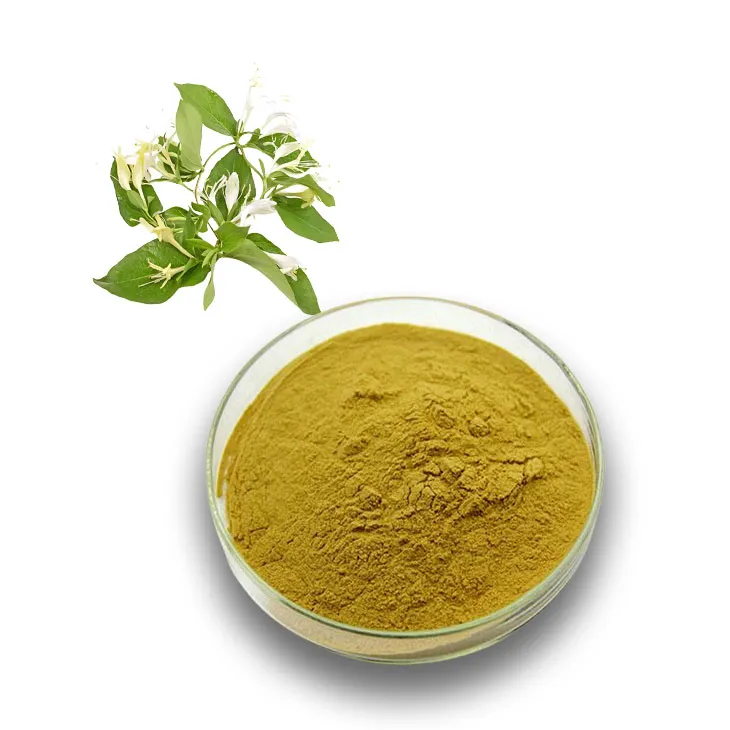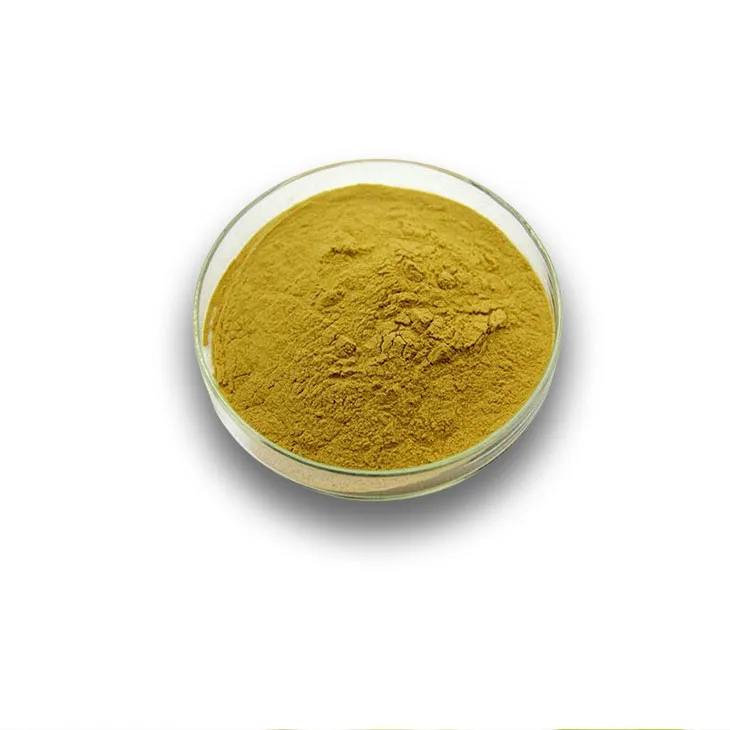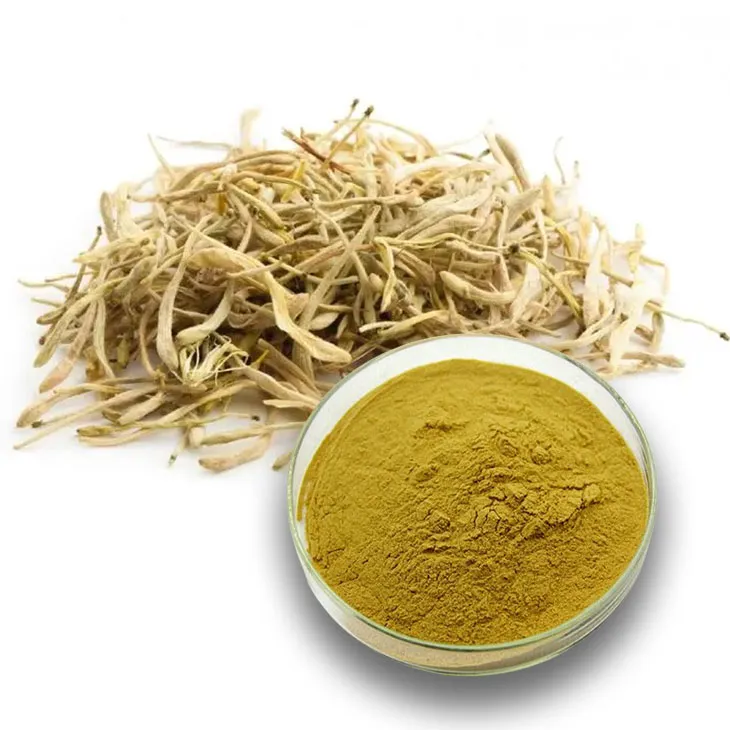- 0086-571-85302990
- sales@greenskybio.com
Honeysuckle Pollen: Benefits and Consumption Guide
2024-11-13

1. Introduction to Honeysuckle Pollen
Honeysuckle Pollen is a natural product derived from the flowers of the honeysuckle plant. It is a rich source of various nutrients and bioactive compounds. The honeysuckle plant is known for its beautiful and fragrant flowers, and its pollen has been used in traditional medicine in some cultures for centuries.

2. Benefits of Honeysuckle Pollen
2.1 Anti - Inflammatory Properties
One of the most notable benefits of honeysuckle pollen is its potential to reduce inflammation. Inflammation is a natural response of the body to injury or infection, but chronic inflammation can lead to various health problems such as arthritis, heart disease, and certain types of cancer. Honeysuckle pollen contains compounds that can modulate the body's inflammatory response, helping to keep inflammation in check.
2.2 Rich in Nutrients
Honeysuckle pollen is packed with essential nutrients. It is a good source of proteins, which are necessary for building and repairing tissues in the body. Additionally, it contains vitamins such as vitamin C, which is important for immune function, and vitamin E, an antioxidant that helps protect cells from damage. Minerals like potassium, calcium, and magnesium are also present in honeysuckle pollen, contributing to various physiological functions in the body.
2.3 Antioxidant Activity
The antioxidant activity of honeysuckle pollen is another significant advantage. Antioxidants are substances that can neutralize harmful free radicals in the body. Free radicals are unstable molecules that can cause oxidative stress, which is linked to aging and many diseases. By scavenging free radicals, honeysuckle pollen can help maintain the health of cells and tissues, and may potentially slow down the aging process.
2.4 Immune - Boosting Effects
Thanks to its nutrient content and bioactive compounds, honeysuckle pollen can also have a positive impact on the immune system. A strong immune system is crucial for defending the body against pathogens such as bacteria, viruses, and fungi. Consuming honeysuckle pollen may help enhance the body's natural defenses, making it more resistant to infections.

3. Consumption Guidelines
3.1 Forms of Consumption
- Honeysuckle pollen can be consumed in its raw form. However, it should be sourced from a reliable and unpolluted environment to ensure safety. Raw pollen has a unique flavor and texture, and some people enjoy it directly.
- Another popular form is in the form of pollen tablets or capsules. These are convenient for those who may not like the taste of raw pollen or find it easier to take a pre - measured dose. Pollen tablets and capsules are often available in health food stores or can be purchased online.
- Honeysuckle pollen can also be added to various foods and beverages. For example, it can be sprinkled on top of yogurt, oatmeal, or smoothies. This not only adds a nutritional boost but also a unique flavor. It can also be dissolved in warm water or herbal tea for consumption.
3.2 Dosage
The appropriate dosage of honeysuckle pollen can vary depending on several factors such as age, health condition, and the purpose of consumption. In general, it is recommended to start with a small dose and gradually increase it if tolerated well. For adults, a starting dose of about 1 - 2 grams per day may be a reasonable starting point. However, it is always advisable to consult a healthcare professional before starting any new supplement regimen, especially for those with underlying health conditions or who are taking medications.
3.3 Precautions
- Allergy: Some people may be allergic to honeysuckle pollen. Before consuming it for the first time, it is important to perform a patch test. Apply a small amount of pollen on a small area of skin, such as the inside of the forearm, and wait for 24 - 48 hours to see if there is any allergic reaction, such as redness, itching, or swelling.
- Pregnancy and Breastfeeding: There is limited research on the safety of honeysuckle pollen during pregnancy and breastfeeding. It is best to avoid consuming it during these periods without consulting a doctor.
- Medication Interactions: Honeysuckle pollen may interact with certain medications. For example, it could potentially affect the efficacy of blood - thinning medications or medications for diabetes. If you are taking any medications, inform your healthcare provider before starting to take honeysuckle pollen.

4. Storage Requirements
Proper storage is essential to maintain the quality and efficacy of honeysuckle pollen. Honeysuckle pollen should be stored in a cool, dry place, away from direct sunlight. Exposure to heat, moisture, and sunlight can cause the pollen to deteriorate and lose its nutritional value. It is best to store it in an airtight container, such as a glass jar with a tight - fitting lid. If stored properly, honeysuckle pollen can maintain its quality for several months to a year.

5. Conclusion
Honeysuckle pollen offers a range of potential benefits, from reducing inflammation to providing essential nutrients and boosting the immune system. However, it is important to follow the consumption guidelines and take necessary precautions when using it. By understanding its benefits and how to consume it safely, individuals can make an informed decision about whether to incorporate honeysuckle pollen into their diet or supplement routine.
FAQ:
1. What are the main benefits of honeysuckle pollen?
Honeysuckle pollen has the potential to reduce inflammation. It may also contain various nutrients that could contribute to overall health, such as vitamins, minerals, and proteins, although more research is needed to fully understand all of its benefits.
2. How should honeysuckle pollen be consumed?
Honeysuckle pollen can be consumed in several ways. It can be added to smoothies, sprinkled on top of yogurt or cereal. Some people may also choose to take it in capsule form. However, it's important to follow the recommended dosage instructions.
3. What are the storage requirements for honeysuckle pollen?
Honeysuckle pollen should be stored in a cool, dry place, away from direct sunlight. It is often best stored in an airtight container to prevent moisture and air from spoiling it. Refrigeration may also be an option to extend its shelf life.
4. Are there any side effects of consuming honeysuckle pollen?
While honeysuckle pollen is generally considered safe for most people, some individuals may experience allergic reactions. These can include symptoms such as itching, swelling, or difficulty breathing. If any adverse reactions occur, consumption should be stopped immediately and medical advice sought.
5. Can everyone consume honeysuckle pollen?
No, not everyone can consume honeysuckle pollen. Pregnant and breastfeeding women should consult their doctor before using it. Also, people with known pollen allergies, especially to honeysuckle, should avoid it.
Related literature
- The Nutritional and Medicinal Properties of Honeysuckle Pollen"
- "Honeysuckle Pollen: A Review of its Health Benefits and Risks"
- "Optimal Consumption and Storage of Honeysuckle Pollen for Maximum Benefit"
- ▶ Hesperidin
- ▶ Citrus Bioflavonoids
- ▶ Plant Extract
- ▶ lycopene
- ▶ Diosmin
- ▶ Grape seed extract
- ▶ Sea buckthorn Juice Powder
- ▶ Fruit Juice Powder
- ▶ Hops Extract
- ▶ Artichoke Extract
- ▶ Mushroom extract
- ▶ Astaxanthin
- ▶ Green Tea Extract
- ▶ Curcumin
- ▶ Horse Chestnut Extract
- ▶ Other Product
- ▶ Boswellia Serrata Extract
- ▶ Resveratrol
- ▶ Marigold Extract
- ▶ Grape Leaf Extract
- ▶ New Product
- ▶ Aminolevulinic acid
- ▶ Cranberry Extract
- ▶ Red Yeast Rice
- ▶ Red Wine Extract
-
Pine bark Extract Powder
2024-11-13
-
Chaste Berry Extract
2024-11-13
-
Cranberry Extract
2024-11-13
-
Reishi mushroom extract
2024-11-13
-
Maitake Mushroom Extract
2024-11-13
-
Angelica sinensis extract
2024-11-13
-
Pomegranate Extract
2024-11-13
-
Jujube Extract
2024-11-13
-
Baicalin
2024-11-13
-
Hawthorn powder
2024-11-13





















